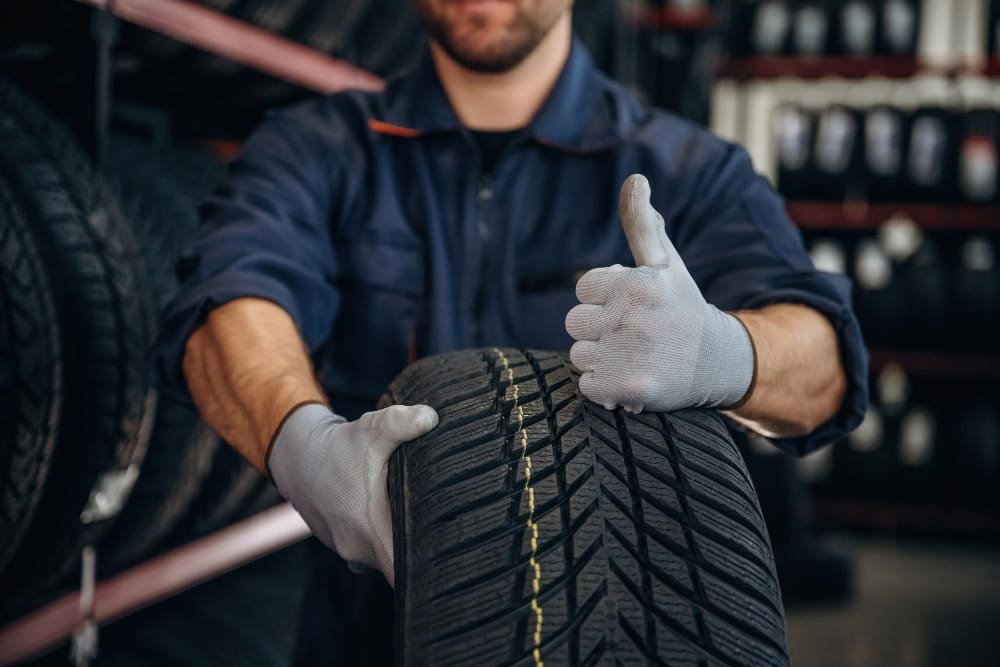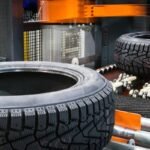Selecting the right tires is critical for ensuring optimal driving safety, comfort, and performance. Tires are the only point of contact between your vehicle and the road, and their condition, type, and specifications directly impact handling, braking distance, fuel efficiency, and overall stability.
In this article, we provide a comprehensive guide to choosing the right tires for your vehicle, helping you drive with confidence in all conditions.
🔍 1. Understand Your Vehicle’s Tire Requirements
Start by checking your vehicle’s manufacturer recommendations, usually found in:
- The owner’s manual
- The tire placard (typically on the driver’s side door frame)
Key specifications to identify:
- Tire size (e.g., 225/55R17)
- Speed rating (e.g., H, V, W)
- Load index (e.g., 94, 102)
- OEM tire types (e.g., all-season, summer, winter)
2. Choose the Right Tire Type Based on Driving Conditions
• All-Season Tires
- Balanced performance for dry, wet, and light snow conditions
- Ideal for moderate climates
- Long tread life and fuel efficiency
• Summer Tires
- Superior dry and wet traction in warm weather
- Not suitable for cold or snowy conditions
- Designed for performance vehicles
• Winter Tires
- Enhanced grip in snow, slush, and ice
- Softer rubber compound remains flexible in low temperatures
- Tread patterns optimized for snowy roads
• All-Terrain / Mud-Terrain Tires (for SUVs & Pickups)
- Best for off-road and mixed-use driving
- Aggressive tread for traction on gravel, mud, and snow
- Increased road noise and lower fuel efficiency on highways
📏 3. Know How to Read a Tire Sidewall
Example: P225/60R16 98H
| Symbol | Meaning |
|---|---|
| P | Passenger vehicle tire |
| 225 | Tire width in millimeters |
| 60 | Aspect ratio (sidewall height %) |
| R | Radial construction |
| 16 | Rim diameter in inches |
| 98 | Load index (how much it can carry) |
| H | Speed rating |
⚖️ 4. Match Your Tire to Driving Habits and Geography
- City drivers: Prioritize comfort, fuel economy, and braking performance
- Highway drivers: Look for low rolling resistance, high-speed stability, and durability
- Mountain or cold climate drivers: Invest in dedicated winter tires or all-weather certified models (3PMSF symbol)
- Off-road or rural drivers: Consider reinforced sidewalls and deep treads for traction and durability
🔁 5. Don’t Ignore Tread Pattern and Rubber Compound
- Tread patterns influence grip, water evacuation, noise level, and comfort.
- Rubber compounds vary based on temperature flexibility, durability, and wet/dry performance.
- Look for technologies such as:
- Silica-enhanced compounds (for wet grip)
- Noise-reducing tread blocks
- Reinforced sidewalls (for heavy loads or rugged terrain)
⏱️ 6. Check Manufacturing Date and Shelf Life
Always inspect the DOT code on the sidewall for the manufacturing date:
- The last four digits indicate the week and year of production. (e.g., 2423 = 24th week of 2023)
- Avoid buying tires older than 5–6 years, even if unused.
✅ 7. Additional Safety & Buying Tips
- Replace all four tires for consistent handling, especially on AWD vehicles.
- Avoid mismatched sizes or brands, unless manufacturer-approved.
- Consider tire pressure monitoring system (TPMS) compatibility.
- Buy from reputable dealers to ensure product authenticity and warranty coverage.
- Balance and align your wheels when installing new tires.
🔄 8. Rotate, Inflate, and Inspect Regularly
Even the best tires need care:
| Maintenance Task | Frequency |
|---|---|
| Tire rotation | Every 8,000–10,000 km |
| Tire pressure check | Monthly |
| Tread depth check | Every 3–6 months |
| Wheel alignment | Every 12–18 months |
📌 Conclusion
Choosing the right tires is an investment in safety, performance, and efficiency. Whether you’re navigating icy winter roads, long highway journeys, or urban streets, your tires need to be properly selected, installed, and maintained to support your driving needs.
Drive smart. Choose wisely. Stay safe.






3 Comments
This is exactly what i was looking for, thank you so much for these tutorials
It would be great to try this theme for my businesses
What a nice article. It keeps me reading more and more!